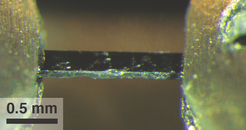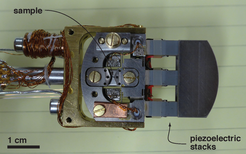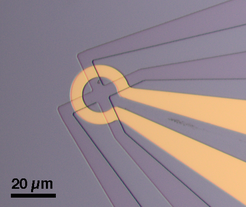MPI-CPfS co-workers: C.W. Hicks, A. Steppke, M. Barber, L. Zhao, N. Nandi, J. Bartlett
One often thinks of the lattice constant of a crystal as a fixed, immutable property. It is not; even the hardest oxides can be stretched like rubber should one wish. Response to lattice distortion can be a powerful probe of the electronic properties of materials. Anisotropic distortion, by lifting native symmetries of the lattice and driving large relative changes in the nearest-neighbor overlap integrals between atomic sites, can be particularly powerful, driving much larger changes than equivalent hydrostatic distortion. It also provides directional resolution.
We have developed new apparatus, based on piezoelectric crystals, for strain-tuning. It can both compress and tension test samples. So far, we have achieved compressive strains of up to 1%, three times larger than with traditional anvil-based techniques. While maintaining precise tunability and high strain homogeneity. A symmetric arrangment of the piezoelectric stacks cancels their thermal contraction, so the apparatus can be used across a wide range of temperatures, including cryogenic temperatures.

A mounted sample






